DistanCE Recorded Webinars
1.5 CE Credits
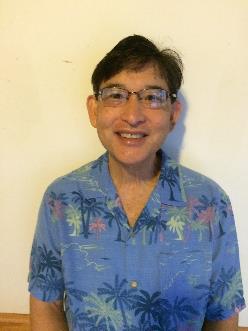 Presented by:
Presented by:
Daryl E. M. Fujii Ph.D.
Board Certified in Clinical Neuropsychology
American Board of Professional Psychology
Fellow, American Psychological Association
Staff Psychologist Veterans Affairs Pacific Island Health Care Services Community Living Center
Asian-Americans are one of the fastest growing ethnic minority groups in the United States. This group is also one of the most diverse and least understood. Given the growth in this population, it is likely that neuropsychologists will be working with Asian clients, thus need to be prepared so that competent services can be provided. This workshop will describe a comprehensive process to conduct a culturally-informed neuropsychological evaluation with Asian-Americans, a process which can be applied to any culturally different client. It distills the impact of culture on the neuropsychological evaluation to three broad components: collecting accurate data, providing a context for interpreting data, and making useful recommendations. Specific topics include: 1) the preparation process for developing a cultural context and guiding strategies for the evaluation, 2) preparation with interpreters, 3) test selection, 4) data interpretation, including estimating premorbid abilities, and 5) report writing.
After the webinar, participants will be able to:
- Formulate a cultural context for understanding Asian-Americans.
- Apply this knowledge toward data collection through focused interviews and test selection.
- Integrate data into a culturally-informed conceptualization and client-centered recommendations.
Target Audience: The CE is appropriate for practicing neuropsychologists and trainees.
Instructional Level: Intermediate/Advanced
About Daryl Fujii, Ph.D., ABPP-CN
Dr. Fujii is a staff neuropsychologist at the Veterans Affairs Pacific Island Health Care Services Community Living Center. He received his Ph.D. from the University of Wyoming in 1991, interned at the Sepulveda VAMC, and completed a postdoctoral fellowship at the Rehabilitation Hospital of the Pacific. Daryl earned his diplomate in clinical neuropsychology from the American Board of Professional Psychology in 1999 and was elected to fellow status of the American Psychological Association in 2006. His research interests include cross-cultural neuropsychology, geriatrics, and psychosis secondary to traumatic brain injury. Publications include two edited books: The Spectrum of Psychotic Disorders: Neurobiology, Etiology, and Pathogenesis (2007) and The Neuropsychology of Asian-Americans (2010), with a third How to Conduct a Culturally-Informed Neuropsychological Evaluation in press. Daryl is currently a Co-Chair of the national VA Psychology Training Committee, Multicultural Diversity Committee and Chair of the Honolulu/Fresno VA Internal Review Board.
NAN members login and non-members create an account to:

1.5 CE Credits
 Presented by:
Presented by:
Bonny J. Forrest, J.D., Ph.D.
Clinical and Consulting Psychologist, New York, NY, Bethesda, MD, Washington, DC, and San Diego, CA
Affiliate Assistant Professor, Alliant International University, San Diego, CA
This is an advanced, intensive training program for expert witnesses who want to take their deposition and trial preparation to the next level. We will utilize numerous actual courtroom case exercises to help us understand how to prepare for testimony based on our written work. Through the scenarios participants will learn techniques to be more effective during direct examination and techniques to be more effective during cross examination in both depositions and actual trial situations.
After the webinar, participants will be able to:
- Anticipate the links between a well written report and the expert’s experience in depositions, or at trials.
- Practice responding to difficult questions from attorneys during direct examinations through online scenarios.
- Develop a list of techniques to effectively handle cross-examinations.
- Describe techniques to present more effectively and persuasively during a trial.
Target Audience: Basic familiarity with forensic work; have written at least one opinion as an expert in a case and willing to submit that and a CV for review.
Instructional Level: Intermediate
About Bonny J. Forrest, J.D., Ph.D.
Dr. Forrest was a practicing attorney for more than a decade, working in major law firms and financial institutions in California and New York City. In those roles, she worked with many expert witnesses, including psychologists. Towards the end of her legal career, she returned to earn her PhD in psychology at Columbia University. She is a clinician with a substantial background in applied research in several settings, including Columbia, Yale and the National Institutes of Health. She has also served as a consultant and an expert witness in a number of cases, testifying in both state and federal courts and in depositions on a variety of issues.
In addition to her clinical and consulting work, she has written a number of publications, including her recent book Will My Kid Grow Out of It?, a guide for parents and teachers through the children’s mental health system. She currently serves as a guest reviewer for several academic journals, and as a member of the editorial board of Child Neuropsychology. She has also served on American Psychological Association committees, including as a liaison to the Scientific Advisory Committee.
Dr. Forrest is a frequent guest commentator for publications, TV shows and radio programs where she uses scientific facts to help explain behavior and psychological issues in a layperson’s language.
NAN members login and non-members create an account to:

Neuropsychological Development and Functioning in Pediatric Neuro-Oncology Survivors: Understanding Risks and Management Techniques
1.5 CE Credits
 Presented by:
Presented by:
Karin Scheetz Walsh, Psy.D.Pediatric Neuropsychologist, Children’s National Health System, Division of Neuropsychology, Washington, DC
Assistant Professor, Department of Neurology, Psychiatry and Pediatrics, George Washington University Medical School, Washington, DC
In this course, Dr. Walsh will present the research to date on acute and long-term cognitive outcomes and trajectories in pediatric brain tumor survivors. A biopsychosocial approach to understanding various risks associated with cognitive outcomes in this population will be discussed, including factors that may mitigate risks such as environmental factors and resiliency. New approaches to managing these risks through novel treatment approaches and neuropsychological monitoring will be presented.
After the webinar, participants will be able to:
- Describe the most common acute and long-term effects of treatment in pediatric brain tumor survivors.
- Describe the common patterns of onset and factors related to such patterns.
- List factors associated with higher and lower risk of cognitive impairment over time.
- Discuss approaches to managing cognitive late effects and the impact on functioning in this population of children.
Target Audience: This CE is appropriate for Psychologists, Nurses, Physicians, Social Workers, and Teachers.
Instructional Level: Intermediate
About Karin Scheetz Walsh, Psy.D.
Dr. Walsh is a pediatric neuropsychologist at Children’s National Health System (CNHS) and Associate Professor of Pediatrics, Psychiatry & Behavioral Health at The George Washington University Medical Center. Dr. Walsh completed her doctoral training at Loyola University of Maryland, her internship at Allegheny General Hospital in Pittsburgh, Pennsylvania, and her post-doctoral residency in neuropsychology at Mount Washington Pediatric Hospital in Baltimore, Maryland. She serves as the primary neuropsychologist for the Brain Tumor and Neurofibromatosis Institutes at CNHS, providing clinical services and conducting clinical research. Her research in neuro-oncology has focused on the neuropsychological outcomes associated with brain tumors and leukemia, specifically the disruption of higher level cognitive skills and the impact on functioning.
NAN members login and non-members create an account to:

Being Present: Bringing Mindfulness Practice to Your Personal and Professional Life
1.5 CE Credits
 Presented by:
Presented by:
Kelli S. Williams, Ph.D.
Director of Neuropsychology, Physical Medicine and Rehabilitation
Co-Director Penn Concussion Clinic; Brain Injury Program Coordinator
Hospital of the University of Pennsylvania & Penn Institute for Rehabilitation Medicine
Stress is nearly unavoidable in our daily lives and can have a tremendous effect on our well-being. As psychologists, we are trained to help others deal with stress and emotional issues. We often forget that in order to help others, we first have to heal ourselves. This presentation will describe the concept of Mindfulness and how meditation could potentially enhance our personal and professional efficacy. Mindfulness is ‘‘the awareness that emerges through paying attention, on purpose, in the present moment, and non-judgmentally to the unfolding of experience moment by moment’’ (Jon Kabat-Zinn). A growing body of research indicates Mindfulness can enhance attentional capacities by improving working memory, processing speed, and sustained attention. Many studies suggest that meditation can potentially change the structure of the brain and neural patterns, possibly offsetting the effects of aging on cognition and protecting the brain against the physiological changes brought about by stress.
After the webinar, participants will be able to:
-
Define mindfulness.
-
Describe types of mindfulness practices including sitting meditation and the body scan, as well as quicker techniques to use throughout the day.
-
Explain how to train your mind to remain in the present and connect to your inner resources and overcome the automaticity of thoughts that cloud thinking.
-
Explain how to set an intention to be more efficient in completing tasks.
-
Use Mindfulness techniques to increase rapport and active listening with your patients.
-
Critique various mindfulness based group programs.
Target Audience: This presentation is for anyone interested in learning about mindfulness to enhance their own well-being and the well-being of their patients and clients.
Instructional Level: Introductory
About Kelli S. Williams, Ph.D.
Dr. Kelli Williams is the Director of Neuropsychology and Co-director of the Concussion Clinic in the Physical Medicine and Rehabilitation Department at the Hospital of the University of Pennsylvania. She is the brain injury program coordinator for the Penn Institute for Rehabilitation Medicine and has more than 26 years of experience in the assessment and treatment of individuals with brain injury. She completed the PENN Program for Mindfulness Practicum in Teaching Mindfulness-Based Stress Management and uses Mindfulness based practices in her own daily life and in her clinical practice.
NAN members login and non-members create an account to:

Ethics, Stroke, and Neuropsychology
1.5 CE Credits
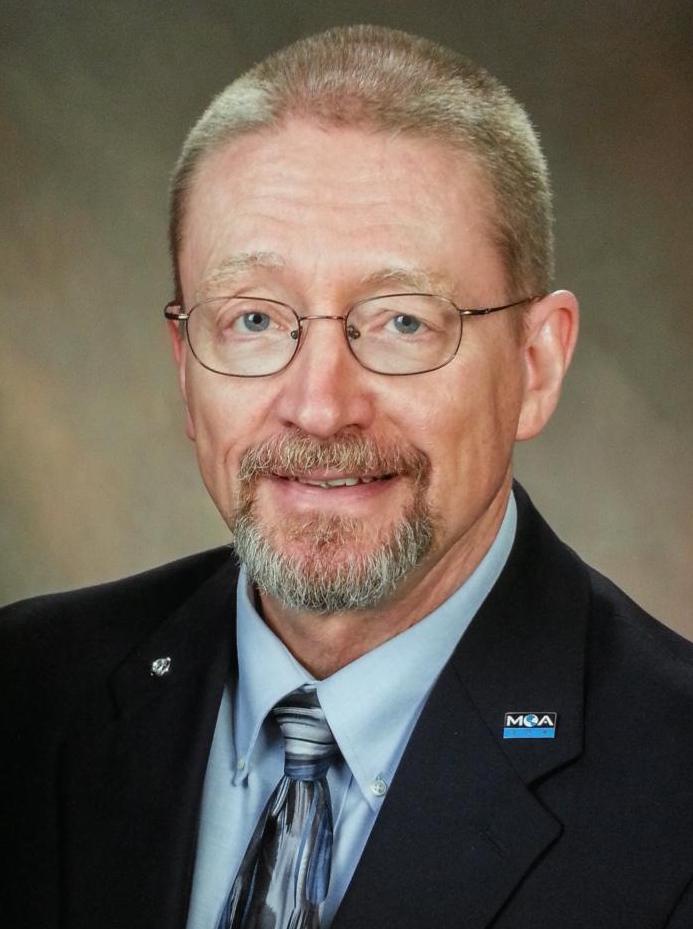 Presented by:
Presented by:
Thomas R. Kerkhoff, Ph.D., ABPP/RP
Board Certified Rehabilitation Psychologist
Clinical Professor (retired)
University of Florida
Dept. Clinical & Health Psychology
The webinar will consist of the following content. In the first portion of the course participants will review the APA Ethics Code principles and standards as they relate to the clinical scenario fact-finding exercises that will follow. The second portion of the course will focus upon explication of an ethics decision-making model developed by Dr. Kerkhoff and his colleagues at University of Florida. This model has been extensively field-tested in varied health care settings, and has proven to provide an efficient and effective organizational framework by which to guide discussions regarding resolving ethical challenges. The third and final portion of the course will involve clinical scenarios relevant to ethical issues in the CVA population. This portion of the course will serve to illustrate the applied nature of ethical discourse in the health care environment.
After the webinar, participants will be able to:
- Demonstrate understanding of relevant APA Ethics Code (2010) principles and standards as applied to clinical practice in a post-stroke population.
- Explain an identified applied decision making model in applied ethics.
- Apply working knowledge of ethical principles and standards to clinical case examples.
Target Audience: This applied webinar is applicable to clinicians and academic psychologists at the intermediate and advanced levels of experience. The content will assist in operationalizing applied ethics in everyday practice and in teaching settings.
Instructional Level: Intermediate
About Thomas R. Kerkhoff, Ph.D., ABPP/RP
Dr. Kerkhoff has regularly published in the area of applied ethics across the past 15 years, since joining the University of Florida faculty. He, Dr. Stephanie Hanson and Dr. Lester Butt have co-authored articles, book chapters and 2 clinical casebooks in the area of applied ethics focused upon the specialties of Rehabilitation, Neuropsychology and Health psychology. He recently won the APA Division 22 Distinguished Career award celebrating his 37 years in rehabilitation as a clinician, mentor, teacher and academic. He has presented numerous regional and national continuing education workshops, and continues to serve as a program surveyor/site visitor for APA Committee on Accreditation and the Florida Department of Health. Since retiring in 2014, Dr. Kerkhoff maintains an active professional life, contributing textbook chapters, peer mentoring and serves as Vice President of the American Board of Rehabilitation Psychology.
NAN members login and non-members create an account to:

1.5 CE Credits
Presented by:
William S. MacAllister, Ph.D., ABPP-CN
Clinical Assistant Professor of Neurology / Neuropsychologist
NYU School of Medicine – Department of Neurology
Coordinator of Pediatric Neuropsychology Training Program
Comprehensive Epilepsy Center
The webinar is designed to acquaint practitioners with the topic of Performance Validity Tests (PVTs) as they pertain to the practice of clinical neuropsychology with children and adolescents. The talk will focus on several issues, including professional guidelines/position statements from the field as well as how the use of such measures dovetails with APA ethical guidelines. The presentation will include a discussion of research on performance validity testing in children, including what tests have the best empirical support for which age ranges. The talk will conclude with illustrative case examples where PVT failure had a direct impact on case conceptualization and directly improved treatment recommendations.
After the webinar, participants will be able to:
- Summarize professional guidelines on the use of Performance Validity Tests.
- Apply knowledge of APA ethics code guidelines to the topic of Performance Validity Testing in children and adolescents.
- List and describe performance validity measures validated for use in children and adolescents.
Target Audience: Pediatric neuropsychologists and trainees working toward becoming pediatric neuropsychologists
Instructional Level: Intermediate
About William S. MacAllister, Ph.D., ABPP-CN
Dr. MacAllister is a board certified neuropsychologist and board certified pediatric subspecialist through the American Board of Clinical Neuropsychology. He is presently faculty at New York University in the Department of Neurology and publishes on the topics of cognition in pediatric multiple sclerosis, cognition in childhood epilepsy, and ethics in the practice of pediatric neuropsychology. A recent clinical and research interest is performance validity testing as it pertains to the practice of pediatric neuropsychology. He presently serves on the Policy and Planning Committee of the National Academy of Neuropsychology and the Board of Directors of the American Board of Clinical Neuropsychology.
NAN members login and non-members create an account to:

1.5 CE Credits
Presented by:
Joseph E. Comaty, Ph.D., M.P.
Adjunct Assistant Professor in Psychology at Louisiana State University
Emeritus Faculty of the Southern Louisiana Internship Consortium in Psychology at Louisiana State University
This course is designed to provide the audience with the most up-to-date information on those psychotropic medications often misused in older adults. The course will cover identification of the medications in the classes of antipsychotics, antidepressants, benzodiazepines, non-benzodiazepine hypnotics, stimulants, cognitive enhancers, and acetylcholinesterase inhibitors. The audience will be provided information on the indications for the use of these classes of medications and their most common adverse effects, particularly as experienced by older adults especially those with dementia. Finally, the course will provide the audience with a summary of the BEERS criteria and other initiatives that have attempted to reduce the use of potentially inappropriate medications in the population of older adults.
After the webinar, participants will be able to:
- Describe the most commonly used psychotropic drugs in the elderly.
- Discuss the difference between the current use of psychotropic drugs versus their FDA indications.
- Explain the most frequently encountered adverse effects of the currently used psychotropic drugs, especially the impact on cognition.
- Discuss the effectiveness of psychotropic medications in treating psychiatric/behavioral disorders of the elderly including risk / benefit ratios.
Target Audience: This presentation is designed for prescribing psychologists; psychologists who work with older adults in a variety of clinical settings; psychologists who may be conducting research on medication effects in the elderly; or psychologists who are teaching courses on psychopharmacology and/or behavioral health treatment of special populations including the elderly. Other behavioral health practitioners may also benefit from the information provided in this course.
Instructional Level: Intermediate
About Joseph E. Comaty, Ph.D., M.P.
Dr. Comaty received his M.S. in experimental psychology from Villanova University; his Ph.D. in psychology with a specialization in clinical neuropsychology from the Rosalind Franklin University of Medicine and Science, in Illinois; and his postdoctoral Masters Degree in clinical psychopharmacology from Alliant University/CSPP of California. He is a licensed psychologist under the Louisiana State Board of Examiners of Psychologists (LSBEP) and a licensed Medical Psychologist (i.e., prescribing psychologist) under the Louisiana State Board of Medical Examiners. He retired from the Louisiana Department of Health and Hospitals, Office of Behavioral Health in 2013 where he was the Chief Psychologist and Medical Psychologist and Director of the Division of Quality Management. He is an adjunct assistant professor in psychology at Louisiana State University (LSU) in Baton Rouge and serves as emeritus faculty of the Southern Louisiana Internship Consortium (SLIC) in psychology at LSU. He is currently serving a second term as member of the LSBEP where he was previously a member and past chair; he has just completed his term as a charter member and most recent chair of the RxP Designation Committee of APA, and is a current site reviewer for APA’s Committee on Accreditation. He is a member of the Model Act and Regulation Revision Committee for the Association of State and Provincial Psychology Boards (ASPPB). His research is in the areas of behavior therapy, pharmacology, and clinical psychopharmacology. He is the author of over 60 articles, book chapters, and presentations. He is a co-author of the psychopharmacology textbook, Julien’s Primer of Drug Action, the most recent edition being published in April 2014. He has served on federal grant review committees and has been a reviewer for Psychiatric Services; The Journal of Gerontology: Psychological Sciences; the Journal of Behavioral Health Services and Research; and the Journal of Psychology & Clinical Psychiatry.
NAN members login and non-members create an account to:

Effects of Alcohol on Cognitive Functioning
1.5 CE Credits
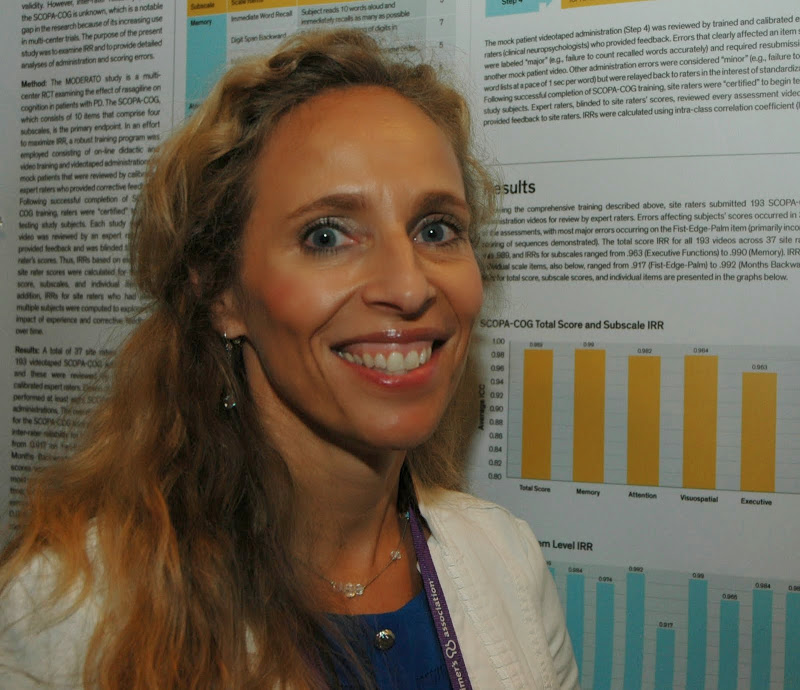 Presented by:
Presented by:
Robin C. Hilsabeck, Ph.D., ABPP
Clinical Scientist II at INC Research
Associate Clinical Professor of Psychiatry at University of Texas Health Science Center in San Antonio
Approximately 17 million adults and 855,000 adolescents had an alcohol use disorder (AUD) in 2012. Deaths related to alcohol are the third leading cause of preventable death in the U.S. Given these statistics, almost all neuropsychologists will be faced at some point with a patient who has an AUD. Understanding both the acute and chronic effects of alcohol on cognitive functioning is a primary objective of this webinar. Recent advances in neuropathophysiology, as well as common findings on neuroimaging and neuropsychological tests are reviewed. The evolution from chronic alcohol use to Wernicke’s encephalopathy to Korsakoff’s syndrome is discussed, along with the effects of alcohol use in special populations, including adolescents and elderly. Risk factors, comorbidity, emerging pharmacotherapies, and cognitive rehabilitation strategies are also highlighted.
After the webinar, participants will be able to:
- Explain cognitive abilities affected by acute and chronic alcohol use.
- Describe the role of thiamine deficiency in cognitive impairment associated with AUDs.
- Differentiate between cognitive profiles of chronic alcohol use and Korsakoff’s syndrome.
- Identify risk factors for AUDs in adolescents.
Target Audience: Neuropsychologists, advanced neuropsychological trainees, physicians, psychologists, and other professionals with specialty training in AUDs
Instructional Level: Intermediate to Advanced (some prior knowledge of neuroanatomy, neurotransmitter systems, and neuropsychological constructs is expected)
About Robin C. Hilsabeck, Ph.D., ABPP
Dr. Hilsabeck is a board certified clinical neuropsychologist who earned her Ph.D. in clinical psychology from Louisiana State University in 1999 with internship training in neuropsychology at University of Oklahoma Health Science Center. She completed a 2-year postdoctoral fellowship in neuropsychology at University of California, San Diego where she worked primarily with patients with chronic liver disease, including those with alcohol dependence and chronic hepatitis C infection.
Dr. Hilsabeck is Clinical Scientist II at INC Research, a contract research organization that assists in running global clinical trials. She also is Associate Clinical Professor of Psychiatry at University of Texas Health Science Center in San Antonio where she has been on faculty since 2006. From January 2005 through June 2012, she served in multiple roles at the South Texas Veterans Health Care System in San Antonio, including Director of the Neuropsychology Service and Director of the Neuropsychology Residency Program. She continues to collaborate in clinical research at the VA in San Antonio.
Dr. Hilsabeck has obtained grant funding from both private funders, as well as the NIH, and has 50 publications, including a recent book chapter on substance use in the edited book by Shane Bush entitled, “Neuropsychological Practice with Veterans.” She is Associate Editor of The Clinical Neuropsychologist and serves on the editorial board of the Archives of Clinical Neuropsychology. She also is Past President of the National Academy of Neuropsychology.
NAN members login and non-members create an account to:

Wada (Intracarotid Amobarbital) Procedure: Clinical Applications
1.5 CE Credits
 Presented by:
Presented by:
Gregory P. Lee, Ph.D., ABPP-CN
Professor, Department of Neurology, School of Medicine
Professor, School of Allied Health Sciences and School of Graduate Studies
Georgia Health Sciences University
Wada testing is an established method to lateralize language and memory functions prior to epilepsy surgery in an attempt to prevent postoperative aphasia and memory loss. Wada memory testing has also become useful in corroborating the side of seizure onset and assisting in the prediction of seizure-relief outcome. This webinar will describe in detail the current most widely utilized Wada testing protocol for assessing language and memory after amobarbital administration as well as the related angiography procedures and how to analyze results and make surgical recommendations. Discussion regarding potential confounding factors, such as angiographic cross-flow, fetal origin arteries, antiepileptic drugs that may reduce amobarbital potency, seizures during the procedure, and severe behavioral reactions will be reviewed. The pros and cons of using drugs other than amobarbital will be briefly considered and the status of the Wada in light of the newer, less invasive procedures, such as functional MRI and magnetoencephalography will also be covered.
After the webinar, participants will be able to:
- Describe the cognitive testing methods used to evaluate language and memory during the Wada procedure.
- Analyze common Wada test result patterns and apply them to surgical recommendations.
- List the major problems than can arise during the Wada and select procedures that help reduce their impact.
- List the medical diagnostic procedures that will most likely replace Wada testing eventually and describe their current shortcomings.
Target Audience: Clinical neuropsychologists and students of neuropsychology (residents, interns, graduate students) who are interested in epilepsy surgery practice.
Instructional Level: Intermediate-to-Advanced
About Gregory P. Lee, Ph.D., ABPP-CN
Dr. Lee is a Professor of Neurology in the Medical College of Georgia at Georgia Regents University. He is board-certified in Clinical Neuropsychology by ABPP/ABCN and a fellow of the American Psychological Association and the National Academy of Neuropsychology. Dr. Lee is the Director of Adult Neuropsychological Services for the Departments of Neurology and Neurosurgery at the Medical College of Georgia, and he teaches courses in the behavioral neurosciences for medical, allied health, and neuroscience graduate students and neurology residents. Professor Lee is also an active researcher with over 150 publications primarily in the areas of clinical epilepsy and epilepsy surgery, and author of the book, Neuropsychology of Epilepsy & Epilepsy Surgery, published by Oxford University Press.
NAN members login and non-members create an account to:

Clinical and Forensic Assessment of Medically Unexplained Symptoms: An Update
1.5 CE Credits
 Presented by:
Presented by:
Laurence M. Binder, Ph.D.
Clinical Associate Professor of Neurology and Psychiatry
Oregon Health and Science University
Neuropsychological complaints do not always have clearly demonstrated pathophysiological origin; these complaints sometimes are largely psychogenic. This webinar will discuss assessment of adults in both clinical and forensic contexts of illnesses including psychogenic nonepileptic seizures (PNES), postconcussive syndrome, and other disputed causes of neurocognitive symptoms. These illnesses sometimes may be associated with objective cognitive abnormalities that are not caused by neurological disease or injury. PNES is the best model of medically unexplained neuropsychological symptoms. Severe stressors and PTSD are associated with immune system problems, neurochemical changes, and various diseases. Diagnostic problems are intensified by the fact that many patients are poor historians, omitting history of severe stressors and psychiatric problems. The inability to talk about stressors increases the likelihood of suffering from physiological forms of stress.
After the webinar, participants will be able to:
- Describe scientific evidence that symptoms are nonspecific and nondiagnostic of brain dysfunction.
- Describe how psychogenic nonepileptic seizures (PNES) are a model of neuropsychological aspects of medically unexplained symptoms.
- Describe how war related symptoms ascribed to concussions sometimes have other causes.
- Describe evidence that patients can be poor historians.
Target Audience: Psychologists with experience performing neuropsychological assessments of adults.
Instructional Level: Intermediate
About Laurence M. Binder, Ph.D.
Dr. Binder completed his Ph.D. in Clinical Psychology at Wayne State University in 1978. He practices in the Portland, Oregon area, where he has performed about 7,000 neuropsychological and psychological evaluations. For 36 years he has been on the faculty of the Oregon Health and Science University where he now is Clinical Associate Professor of Neurology and Psychiatry. He is a Fellow of the National Academy of Neuropsychology (NAN ) and of the Society for Clinical Neuropsychology (Division 40) of the American Psychological Association. He was on the staff of the Portland VA Medical Center from 1981-1996 where he served as Director of Postdoctoral Training in Clinical Neuropsychology.
Dr. Binder has authored and co-authored papers and book chapters on many topics including assessment of effort and malingering, mild traumatic brain injury outcome, and medically unexplained symptoms including psychogenic nonepileptic seizures. He currently participates in research at the Portland VA Medical Center on the effects of blast injuries. In 2010 he received the Nelson Butters Award from NAN for the best research paper published in the Archives of Clinical Neuropsychology the previous year. He has served as a member of the editorial boards of several journals.
NAN members login and non-members create an account to:

1.5 CE Credits
 Presented by:
Presented by:
Lisa A. Jacobson, Ph.D., NCSP
Pediatric Neuropsychologist
Kennedy Krieger Institute
Assistant Professor, Psychiatry & Behavioral Sciences
Johns Hopkins University School of Medicine
Sluggish Cognitive Tempo (SCT) is a construct that evolved from field trials for the ADHD criteria in DSM-IV. It includes such characteristic symptoms as lethargy, low initiation, mental "fogginess," and slowed speed of information processing. Although SCT shows some overlap with Inattentive ADHD symptoms, evidence is mounting for consideration of SCT as a separate, but related, construct. This workshop will review descriptive evidence for SCT as a separate clinical disorder and empirical data from a variety of research studies characterizing SCT and its related comorbidities and areas of impairment. The NIMH's Research Domain Criteria (RDoC) project provides a framework for shifting our understanding of disorders from categorical to dimensional, taking development, multiple levels of assessment, and environmental expectations into account. Data will be presented that reflect a dimensional approach and the need for further behavioral clarification of the construct, but also suggest areas for potential intervention and/or accommodation within classrooms and daily activities.
After the webinar, participants will be able to:
- Describe the characteristic diagnostic and associated features of SCT.
- Explain the current empirical support for the construct of SCT.
- Identify assessment techniques for SCT symptoms and relevant supports.
Target Audience: This workshop is designed for practicing or research psychologists and neuropsychologists interested in understanding attentional disorders in children and developing their understanding of sluggish cognitive tempo. The workshop is of intermediate level in terms of assumptions regarding familiarity with clinical practice with youth with ADHD, current literature on ADHD, and child development.
Instructional Level: Intermediate
About Lisa A. Jacobson, Ph.D., NCSP
Lisa Jacobson received a B.A. in Psychology from Davidson College and earned an Ed.S. in School Psychology from the College of William & Mary in VA. She worked as a school psychologist for several years before completing her Ph.D. in Clinical Psychology and Neuropsychology at the University of Virginia. She completed her predoctoral Clinical Psychology Internship at the Mailman Center for Child Development, in Miami, FL, and a postdoctoral fellowship in Clinical Neuropsychology at the Kennedy Krieger Institute/Johns Hopkins University School of Medicine. She is currently Assistant Professor in Psychiatry and Behavioral Sciences at the Johns Hopkins University School of Medicine and a pediatric neuropsychologist in the Kennedy Krieger Institute Department of Neuropsychology, where she coordinates the executive function and neuro-oncology outpatient assessment clinics, is involved in training pre-doctoral interns and post-doctoral fellows, and conducts clinical research.
Dr. Jacobson is interested in brain development and attentional control, processing speed, and executive functions in children, and associations of these functions with learning and behavioral disorders. She is interested in studying children with identified disorders affecting executive functioning (e.g., ADHD, movement disorders, Spina Bifida, cancers and cancer treatment, etc.) as well as children at risk for developing executive dysfunction, and investigating ways in which parents and teachers can support children's development of EF skills. She is working to develop clinical screening tools for identifying children with executive dysfunction that can be used as part of typical medical care visits for specific clinical populations. She has collaborated on a variety of projects examining response variability in children with ADHD, characteristics of attentional disorders in referred children, influences of working memory on reading fluency in ADHD, neurocognitive profiles of childhood cancer survivors, executive functioning in spina bifida, and validation of the Kennedy Krieger Independence Scales - Spina Bifida Version (KKIS-SB). She is also involved in collaborations with the Maryland State Department of Education and Towson University designed to improve teacher training regarding neurodevelopment and interventions for children with various developmental disorders.
NAN members login and non-members create an account to:
Professional Competence versus Non-Discrimination: Ethical Dilemmas in the Evaluation of Non-Native-English Speakers
1.5 CE Credits
 Presented by:
Presented by:
Tedd Judd, Ph.D.
Diplomate in Clinical Neuropsychology
Certified Hispanic Mental Health Specialist
Cross-Cultural Specialist
There are approximately 50 million Spanish speakers in the US (including bilinguals) and over 10 million speakers of other non-English languages (20% of population). Most neuropsychologists will routinely encounter significant numbers of non-native-English speakers. Law and ethics oblige practitioners to offer equitable services to such populations. Many neuropsychologists feel poorly prepared for this. Fortunately, recent developments in procedures, tests, and professional organizations make such work increasingly feasible.
After the webinar, participants will be able to:
- Summarize the professional ethics, laws, and guidance that govern neuropsychological assessment of non-native-English speakers.
- Utilize a comprehensive model of how to enhance their own skills, test repertoires, practices, and institutions so as to routinely evaluate the non-native-English speakers of their communities ethically and with confidence and accuracy.
- Explain how to advocate for institutional change to improve evaluation equity.
Target Audience: Neuropsychologists, psychologists, advanced clinical psychology students, instructors, and neuropsychology program administrators interested in enhancing quality, ethics, and equity of service to non-native-English speakers.
Instructional Level: Introductory, but to include materials of interest to the advanced practitioner
.
About Tedd Judd, Ph.D.
Dr. Tedd Judd is a Board Certified Clinical Neuropsychologist, a Certified Hispanic Mental Health Specialist, a Fellow of the National Academy of Neuropsychology, and Past President of the Hispanic Neuropsychological Society. He practices cross-cultural forensic and clinical neuropsychology. He is adjunct faculty in psychology at Seattle Pacific University. Dr. Judd received his B.A. from Princeton, his PhD from Cornell, and postdoctoral training in neuropsychology at the University of Washington. He learned Spanish beginning in graduate school and now practices bilingually. He has taught neuropsychology in 22 countries, including a Fulbright Senior Lectureship in Spain and two years of teaching in Costa Rica. He teaches a practicum in cross-cultural psychology, working with interpreters in many languages and doctoral students from 8 universities, and offers cross-cultural consultation nationally and internationally.
NAN members login and non-members create an account to:

1.5 CE Credits
 Presented by:
Presented by:
Robert A. Seegmiller, Ph.D., ABPP
Director, Postdoctoral Residency in Clinical Neuropsychology
Staff Neuropsychologist, Department of Behavioral Medicine
Brooke Army Medical Center
This webinar will review a number of clinically significant issues relating to traumatic brain injury (TBI) in the military, with an emphasis on mild traumatic brain injuries sustained by service members who served in OIF/OEF. In addition to a brief review of prevalence statistics, topics to be covered will include an examination of blast versus conventional blunt-force trauma injuries, assessment and management of mild TBIs in military environments, factors that contribute to chronic postconcussive syndromes, the relationship between mTBIs and PTSD, military disability evaluations, malingering and somatoform presentations, and a brief discussion of intervention goals and strategies. The webinar will address a wide range of issues that are most likely to be encountered by neuropsychologists and other mental health providers who work with military members and veterans who have sustained the “signature injury of the war.”
After the webinar, participants will be able to:
- Describe the prevalence and nature of traumatic brain injuries sustained by military personnel during OIF/OEF, including injury severity and key demographics.
- Summarize challenges associated with the assessment and management of mild traumatic brain injuries in different military environments.
- Delineate similarities and differences between blast-induced and blunt-force traumatic brain injuries.
- Discuss performance and symptom validity test “failures” in the context of mild traumatic brain injuries in a military population.
Target Audience: This webinar is intended for those with an interest in military traumatic brain injuries. The primary emphasis will be on military personnel who have sustained mild traumatic brain injuries (mTBIs) during Operations Enduring Freedom and Iraqi Freedom. Neuropsychologists and other mental health providers who assess and treat this population, and those who simply have an interest in how the military deals with patients with mTBIs, are invited to participate.
Instructional Level: Introductory to Intermediate
About Robert A. Seegmiller, Ph.D., ABPP
Dr. Robert Seegmiller is a clinical neuropsychologist and Director of the Postdoctoral Residency in Clinical Neuropsychology at Brooke Army Medical Center in San Antonio, Texas. He retired from the United States Air Force in July 2007, where he previously served as the Chief of Neuropsychology Services at Wilford Hall USAF Medical Center. He earned his Bachelor’s Degree in Psychology at Brigham Young University and his Master’s and Doctorate Degrees in Psychology at Iowa State University. Dr. Seegmiller completed a two year post-doctoral fellowship in clinical neuropsychology at the University of Virginia Health Sciences Center in 1998 and received his board certification in clinical neuropsychology from the American Board of Professional Psychology in 2000. He deployed twice to Qatar, once to Iraq, and once to Guantanamo Bay, Cuba in support of military operations following September 11th, 2001. He is married and has four sons.
NAN members login and non-members create an account to:
1.5 CE Credits
 Presented by:
Presented by:
Brian Yochim, Ph.D.
Mental Illness Research, Education, and Clinical Center (MIRECC), VA Palo Alto Health Care System
Clinical Assistant Professor (Affiliated), Department of Psychiatry and Behavioral Sciences, Stanford University School of Medicine
The DSM-5 contains substantial changes from the DSM-IV-TR that reflect increases in knowledge about conditions that affect cognition in adults. This course will enable attendees to develop expertise in the DSM-5 diagnostic criteria for neurocognitive disorders (NCDs). New diagnostic criteria for NCDs due to Alzheimer’s disease, frontotemporal degeneration, traumatic brain injuries, vascular disease, Lewy body disease, Parkinson’s disease, and other etiologies, and delirium, will be covered in depth. The course will cover the diagnostic criteria for major and mild NCDs, the specifications for “probable” vs. “possible” causes of NCDs included in the DSM-5, and the six cognitive domains included in the DSM-5 to be assessed. The webinar will focus on implications for neuropsychological assessment.
After the webinar, participants will be able to:
- Describe the difference between mild vs. major Neurocognitive Disorder (NCD).
- Describe the diagnostic criteria among the different NCDs.
- Explain the diagnostic criteria for “probable” vs. “possible” causes of the different NCDs.
- Discuss implications for neuropsychological assessment of the different NCDs, including the six cognitive domains to be assessed in the diagnosis of NCD.
Target Audience: This webinar will be targeted toward neuropsychologists who see primarily adult clients who wish to develop competency in using the DSM-5 to diagnose neurocognitive disorders. Licensed professionals who wish to gain more expertise in DSM-5 nosology as well as postdoctoral fellows or interns will benefit from this webinar.
Instructional Level: Introductory
About Brian Yochim, Ph.D.
Dr. Brian Yochim is a Board-Certified Clinical Neuropsychologist working in the Mental Illness Research, Education, and Clinical Center (MIRECC) at VA Palo Alto Health Care System in Palo Alto, California, where he conducts research on the neuropsychological assessment of older adults, with a focus on word-finding in patients with Alzheimer’s disease. He also supervises postdoctoral fellows, interns, and practicum students performing neuropsychological evaluations for older Veterans. He is a Clinical Assistant Professor (Affiliated) in the Department of Psychiatry and Behavioral Sciences at the Stanford University School of Medicine. He obtained his PhD in clinical psychology at Wayne State University, completed an internship at VA Palo Alto Health Care System, and a postdoctoral fellowship in clinical neuropsychology at VA Northern California Health Care System. He is the lead author of the Neurocognitive Disorders chapter of the forthcoming DSM-5 Study Guide.
NAN members login and non-members create an account to:
1.5 CE Credits
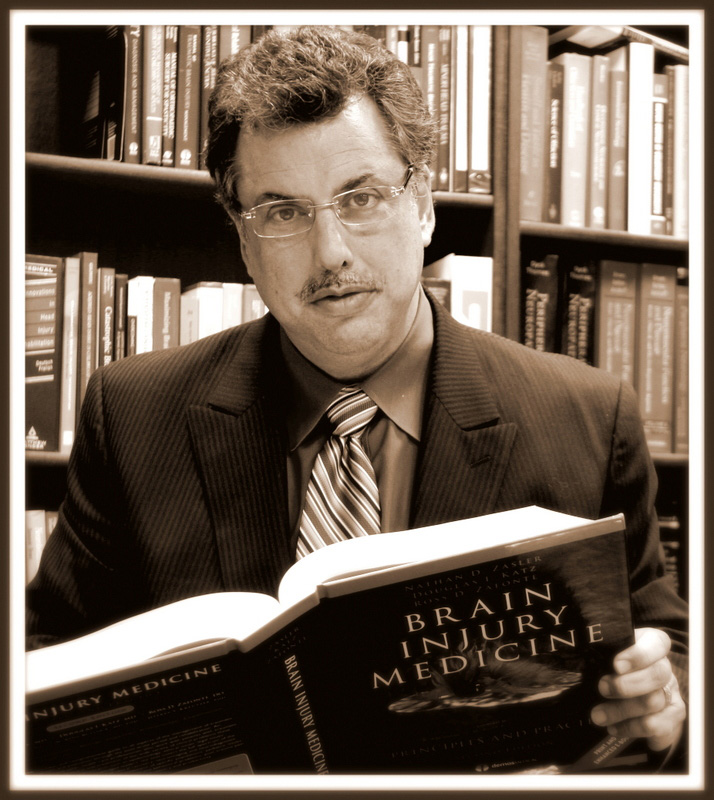 Presented by:
Presented by:
Nathan D. Zasler, MD, FAAPM&R, FAADEP, DAAPM, CBIST
CEO & Medical Director, Concussion Care Centre of Virginia, Ltd.
CEO & Medical Director, Tree of Life Services, Inc.
Professor, affiliate, VCU Department of Physical Medicine and Rehabilitation, Richmond, Virginia
Associate Professor, adjunct, Department of Physical Medicine and Rehabilitation, University of Virginia, Charlottesville, Virginia
Vice-chairperson, IBIA
This webinar will review current practices, research and advances in the use of psychopharmacological agents to modulate impairment in persons with neurobehavioral impairment following TBI. This plenary session will focus on presenting current information on psychopharmacologic assessment and management principles and practices.
After the webinar, participants will be able to:
- Recite caveats regarding holistic behavioral assessment and treatment principles.
- Discuss drug treatment paradigms for persons with TBI and compare proposed methodologies for choosing drug interventions and the role of multidimensional nature of assessment.
- Explain the common types of neurobehavioral impairments that are theorized to be causally related to TBI and list pharmacological management of each as relevant based on current literature and EBM.
- List caveats regarding drug use, side-effects, lab monitoring and drug interactions as related to psychotropic medication use in persons with TBI.
- Describe the importance of adequate differential diagnosis of behavioral change following TBI and the myriad factors that need to be considered across the TBI severity spectrum prior to implementing psychopharmacological prescription.
Target Audience: Clinical neuropsychologists, psychologists, Ph.D. students in training and non-psychologists
Instructional Level: Intermediate-to-Advanced
About Nathan D. Zasler, M.D.
Nathan D. Zasler, MD, FAAPM&R, FAADEP, DAAPM, CBIST is an internationally respected physician specialist in acquired brain injury (ABI) care and rehabilitation. He is CEO and Medical Director of the Concussion Care Centre of Virginia, an outpatient neurorehabilitation practice, as well as Tree of Life Services, Inc., a living assistance and transitional neurorehabilitation program for persons with acquired brain injury in Richmond, Virginia.
He is board certified in Physical Medicine and Rehabilitation and fellowship trained in brain injury. Dr. Zasler is an affiliate professor in the Department of Physical Medicine and Rehabilitation at VCU in Richmond, Virginia, as well as associate professor, adjunct, in the Department of Physical Medicine and Rehabilitation at the University of Virginia, Charlottesville, Virginia where he also serves on the UVA Brain Injury and Sports Concussion Institute Professional Advisory Board. Dr. Zasler is a fellow of the American Academy of Disability Evaluating Physicians and a diplomate of the American Academy of Pain Management.
Dr. Zasler has lectured and written extensively on neurorehabilitation issues related to acquired brain injury. He has won numerous awards for his work in TBI research, clinical care, and advocacy. He was the NHIF’s (now BIAA) first recipient of the “Young Investigator Award.” He was the recipient of the Sheldon Berrol Clinical Services award from BIAA in 2011. He has also been, repeatedly, nationally recognized by “Best Doctors” for practice excellence in brain injury medicine. Dr. Zasler is active in local, national and international organizations dealing with acquired brain injury and neurodisability, serving in numerous consultant and board member roles. He has edited six books including “Rehabilitation of Post-Concussive Disorders,” “Medical Rehabilitation of Traumatic Brain Injury,” “Rehabilitation of Functional Disorders,” “Brain Injury Medicine: Principles and Practice”, Editions 1 and 2, and “Clinical Manual for the Management of Adults with Traumatic Brain Injury”. He currently serves as a reviewer for over 10 peer reviewed scientific journals. Dr. Zasler is chief editor of the international scientific publications, “Brain Injury” and “NeuroRehabilitation”. He also serves as associate editor of the IBIA’s “Neurotrauma Letter.” Dr. Zasler recently completed almost a decade of service as the chairperson of the International Brain Injury Association (IBIA) for which he now serves as Vice-Chairperson.
His main areas of clinical and research interest include neuromedical issues in acquired brain injury (particularly mild TBI), neuropsychopharmacology and disorders of consciousness, differential diagnosis in ABI, community-based care issues, as well as chronic post-traumatic pain rehabilitation including headaches. Dr. Zasler is an advocate, educator, clinical researcher, entrepreneur, inventor and busy practicing clinician who is involved with community based neurorehabilitation and neuromedical assessment in management of persons with acquired brain injury, neurodisability, as well as chronic pain. He is also involved in international ABI healthcare consultation, including clinical and technical programmatic development, as well as medicolegal consultation.
NAN members login and non-members create an account to:
1.5 CE Credits
 Presented by:
Presented by:
Bernice Marcopulos, Ph.D.
Associate Professor
Department of Graduate Psychology
James Madison University
As clinical neuropsychologists, many, if not most of us regularly supervise trainees, but do we really know what we are doing? Supervision is seldom taught in graduate school and according to Stucky, Bush & Donders (2010) “it is the extremely rare neuropsychology conference that offers a continuing education workshop on neuropsychological supervision.” (p. 741). This workshop is intended to address this deficiency and provide an opportunity to reflect upon what makes a good clinical neuropsychology supervisor. This workshop will draw on material from Stucky, et al. (2010) and Fouad et al (2009) to provide a conceptual and structural framework for providing effective supervision in clinical neuropsychology. Participants will review methods for developing and measuring training goals from a developmental perspective (practicum, internship, post-doctoral fellowship).
After the webinar, participants will be able to:
- Utilize foundational and functional competencies in professional psychology as a basis for supervision of trainees in clinical neuropsychology.
- List achievable goals of supervision for each level of training (practicum, internship, post-doctoral fellowship) in neuropsychology
- Explain how the APA Ethics code and organizational guidelines (NAN, AACN) relate to clinical supervision in neuropsychology
- Describe methods for measuring training goals and efficacy of supervision.
Target Audience: Clinical neuropsychologists involved in supervising practicum students, pre-doctoral interns and postdoctoral fellows in patient care settings
Instructional Level: (Intermediate-to-Advanced) Intermediate
About Bernice A. Marcopulos, Ph.D., ABPP
Bernice A. Marcopulos, Ph.D., ABPP received her B.A. (High Honors) from the University of Florida and her Ph.D. from the University of Victoria in British Columbia, Canada. She is Board Certified in Clinical Neuropsychology from the American Board of Professional Psychology. Currently she is Associate Professor of Graduate Psychology at James Madison University in Harrisonburg, VA and Associate Professor of Psychiatry and Neurobehavioral Sciences at the University of Virginia (UVA) Health Sciences Center in Charlottesville, VA. Dr. Marcopulos was the Director of the Western State Hospital (WSH) Neuropsychology Laboratory in Staunton, Virginia for 20 years where she co-Directed (with Drs. Jeff Barth and Donna Broshek) the UVA/WSH post-doctoral fellowship in Clinical Neuropsychology, an Association of Post-Doctoral Programs in Clinical Neuropsychology member program. She taught assessment in the Department of Psychology at UVA and supervised interns, practicum students and post-doctoral fellows. Her research and clinical interests include the effects of education and culture on neuropsychological testing, dementia, schizophrenia, and criminal forensic issues. She is the co-editor of Clinical Neuropsychological Foundations of Schizophrenia (2012). She was a Fulbright Fellow in the Psychology Department at the University of Warsaw in 1994 and was elected as a Fellow in NAN and APA. She was recently on the APA Committee for Psychological Tests and Assessment and is a consulting editor for The Clinical Neuropsychologist. She has served as a Board Member and Oral Examiner for the American Board of Clinical Neuropsychology, and she currently chairs the Examination Committee of the ABCN. Dr. Marcopulos is serving her second term as Secretary of the International Neuropsychological Society.
NAN members login and non-members create an account to:
1.5 CE Credits
 Presented by:
Presented by:
Erin Bigler, Ph.D.
Some form of brain imaging is routinely performed on most patients that are seen by neuropsychologists. Neuroimaging is considered a foundation area of study and training for neuropsychologists. This webinar will cover the common neuroimaging modalities of computed tomography (CT), magnetic resonance imaging (MRI), single photon emission computed tomography (SPECT) and positron emission tomography (PET) and their relevance to clinical neuropsychology. The basis for understanding neuroimaging begins with neuroanatomy and neuropathology, which will be covered. Anatomical identification across the different imaging modalities will be overviewed followed by a very practical approach showing how neuroimaging findings may be integrated with neuropsychological assessment. Neuroimaging findings in common disorders as seen by neuropsychologists such as traumatic brain injury, stroke, multiple sclerosis, neurodevelopmental disorders, aging and neurodegenerative disease will be highlighted. Methods of quantitative neuroimaging, especially automated techniques like FreeSurfer will be overviewed. The webinar will conclude with a discussion of the role of advanced neuroimaging techniques like functional MRI (fMRI) and the development of standardized cognitive probes, use of fMRI techniques in assessing resting state functional connectivity mapping combined with diffusion tensor imaging (DTI) that permit assessment of network functioning in neuropsychology.
After the webinar, participants will be able to:
- Describe the differences in technology that generate computed tomographic (CT) scans, magnetic resonance imaging (MRI) scans and radiotracer-based tomography [single photon emission computed tomography (SPECT) or positron emission tomography (PET).
- Assess basic neuroanatomy from viewing CT, MRI, SPECT and/or PET imaging studies.
- Explain the basics of neuropathological findings from viewing CT, MRI, SPECT and/or PET imaging studies.
- Apply neuroimaging decision making skills relevant to integrating scan findings with neuropsychological assessment and cognitive/neurobehavioral outcome in disorders like traumatic brain injury, stroke, demyelinating disorders, developmental syndromes, ageing and degenerative diseases.
Target Audience: Clinical neuropsychologists or Ph.D. students in training
Instructional Level: (Intermediate-to-Advanced) The presentation will assume some formal prior training in neuroanatomy and pathoanatomical correlates for the major neurological and neuropsychiatric disorders
About Erin Bigler, Ph.D.
Erin D. Bigler, Ph.D. holds the Susa Young Gates Chair as Professor of Psychology and Neuroscience at Brigham Young University (BYU) where he served as Chair of the Psychology Department for over six years (1996-2002). He is also an Adjunct Professor in the Department of Psychiatry at the University of Utah. He was formerly a professor of psychology and psychiatry at the University of Texas, until he returned to Utah in 1990 to assume his current position. In 1977 at the University of Texas at Austin he established the clinical neuropsychology subspecialty training program that continues to this day and in the early 1980’s at Austin also established the Brain Imaging and Behavior Laboratory, which he brought with him when he came to BYU. The Brain Imaging and Behavior Laboratory has played a key role in numerous multisite collaborative studies providing quantitative neuroimaging analysis. His research has focused on the interface between neuroimaging findings and methods of analysis in the study of cognitive and neurobehavioral outcome associated with a variety of disorders including traumatic brain injury, Alzheimer’s disease and related neurodegenerative disorders and neurodevelopmental disorders like autism and learning disability. He served as President of the National Academy of Neuropsychology from 1989-1990 and later in 1999, received their Distinguished Clinical Neuropsychologist Award. In that same year, he was also the recipient of the Karl G. Maeser Distinguished Faculty Lecturer Award, Brigham Young University's top faculty honor.
Dr. Bigler has authored and developed several neuropsychological tests, published 90 book chapters, and authored and/or edited 9 textbooks—most recently as one of the coauthors of Muriel Lezak’s Neuropsychological Assessment – 5th Edition. He has also authored/co-authored and published over 270 peer-reviewed articles in neuropsychology, neuroimaging and cognitive neuroscience.
Currently, Dr. Bigler is the President of the International Neuropsychological Society (INS) where he previously served as Treasurer and a member of the Board of Directors for many years. He was the inaugural Associate Editor for the Journal of the International Neuropsychological Society (JINS) and served in that capacity for 11 years. He is the founding Associate Editor of the journal Brain Imaging and Behavior and likewise serves as an Associate Editor for Neuropsychology along with several other editorial boards. He has been a licensed psychologist since 1975, practicing in the area of clinical neuropsychology, and holds a Diplomate from the American Board of Professional Psychology with special competence in clinical neuropsychology. He has trained over 125 doctoral students in his nearly 40 years as a professor. Recently, Dr. Bigler was appointed the Director of BYU’s new MRI Research Facility which houses an on-campus Siemens 3Tesla magnetic resonance scanner.
NAN members login and non-members create an account to:
1.5 CE Credits
Presented by:
 Antonio Puente, Ph.D.
Antonio Puente, Ph.D.
 Adriana Strutt, Ph.D.
Adriana Strutt, Ph.D.
This webinar is designed to help students, early career neuropsychologists and seasoned practitioners recognize the complexities involved in the comprehensive assessment of Hispanics residing in the United States. Material will be relevant to both clinical providers and researchers. The influence of socio-demographic variables and psychosocial factors on neurocognitive performance and outcome measures will be examined. Barriers (including minimal assessment tools and normative data) in providing competent neurocognitive evaluations for this population will be discussed. Progress in the evolving subspecialty of Hispanic Neuropsychology will be reviewed, including recent developments in testing standards and guidelines. Potential solutions for clinical and research settings will be offered. Examiner and examinee variables to consider when working with Hispanics will be discussed and an empirically based decision-making process approach for the assessment of diverse clients in the U.S. will be provided.
After the webinar, participants will be able to:
- Explain the effect of socio-demographic and psychosocial factors, including linguistic and cultural variables, on neuropsychological performance and outcome measures, and the common challenges faced by those who serve Hispanics in clinical and research arenas
- Utilize an empirically based decision-making process approach for use with culturally and linguistically diverse populations that includes resources for test development and translations and cultural modifications
- Recognize the influence of examinee and examiner variables on neuropsychological and psychological outcomes
- Apply new testing standards to culturally and linguistically dissimilar individuals
Target Audience:
- Students of all levels interested in the subspecialty of cross-cultural neuropsychology
- From students to experienced neuropsychologists
- Clinicians and researchers working with Hispanics across the life span and with clients of varying degrees of language mastery (English speaking, bilingual and monolingual Spanish-speakers)
Instructional Level of Presentation: This webinar is designed to be of benefit to students, early career neuropsychologists and seasoned practitioners. Material presented provides the learner with a summary of the evolving subspecialty of Hispanic Neuropsychology. A foundation regarding socio-demographics and psychosocial variables that influence cognitive performance is provided for those early in their careers. Novel resources and references are provided, which will be of benefit to the more advanced and experienced clinicians and researchers. Overall, a comprehensive webinar that will be of benefit to practitioners with varying levels of experience.
About Antonio Puente, Ph.D.
Antonio Puente, born in La Habana, Cuba, received his undergraduate degree in psychology from the University of Florida and his graduate degrees from the University of Georgia. He is currently Professor of Psychology at the University of North Carolina Wilmington and maintains a private practice for clinical neuropsychology. He is the founder and co-director of the Cape Fear Clinic, a bilingual mental health clinic for the poor and uninsured. He is widely published in English and in Spanish, and he is the founder and editor of the quarterly scientific journal, Neuropsychology Review, as well as a book series in clinical neuropsychology. Dr. Puente is Past-President of the Hispanic Neuropsychological Society, National Academy of Neuropsychology, North Carolina Psychological Association, North Carolina Psychological Foundation, and Division 40 (Clinical Neuropsychology) of the American Psychological Association (APA), where he also served two terms as a Council of Representatives (40). He has chaired the Psychology Academy of the National Academies of Practice as well as several APA Boards and Committees, currently on the Joint Committee for Standards for Educational and Psychological Tests. Puente was APA’s representative to the American Medical Association’s Current Procedural Terminology panel from 1993 to 2008, when he was elected to the Editorial Panel of the CPT (voting member to 2016). Puente was a Fulbright Scholar in 1983 (Argentina), NCPA and NAN’s Lifetime Service Achievement Award recipient, and he received the APA’s Distinguished Professional Contributions to Independent Practice in 2011.
About Adriana Strutt, Ph.D.
Adriana Macias Strutt completed her undergraduate degree at the University of La Verne in La Verne, California. She earned a Master’s degree in experimental psychology and a doctorate in clinical psychology with an emphasis in neuropsychology from Loma Linda University in Loma Linda, California. She completed her APA approved internship and fellowship in neuropsychology at Baylor College of Medicine (BCM) in Houston, Texas and has been a faculty member at BCM since 2008. She is presently an Assistant Professor in the departments of Neurology and Psychiatry & Behavioral Sciences. She is bilingual and board certified in clinical neuropsychology. Dr. Strutt is the recipient of two Fulbright & Jaworski LLP Faculty Excellence Awards (Teaching & Evaluation and Enduring Materials) and a member of BCM’s Academy of Distinguished Educators. She provides clinical and forensic neuropsychological assessment for English and Spanish speaking children, adults and geriatrics who suffer from a myriad of neurological conditions. She also conducts clinical research with an emphasis in neurodegenerative disorders and is involved in neuropsychological test development and validation.
NAN members login and non-members create an account to:
1.5 CE Credits
 Presented by:
Presented by:
Paul T. Ingmundson, Ph.D.
Sleep disorders are common, under recognized, and treatable. Many patients presenting with problems with attention, concentration, and sustained vigilance have disturbed sleep. This course will provide the participant with an overview of sleep mechanisms, a review of common sleep disorders, and an introduction to the techniques for evaluating and treating sleep problems. The participant in this webinar will learn how chronic insufficient sleep and sleep disorders contribute to disturbances in mood, memory and cognition. The recognition of common sleep disorders is an important element of neuropsychological assessment and diagnosis. Techniques used in the cognitive behavioral treatment of insomnia can be incorporated into the armamentarium of interventions provided by a clinical neuropsychologist, and yield improved treatment outcomes.
After the webinar, participants will be able to:
- Describe basic sleep mechanisms and common sleep disorders
- Explain how sleep disorders contribute to disturbances in mood, memory, and cognition
- Utilize introductory techniques for evaluating and treating sleep problems with appropriate patients
Target Audience: This webinar will target clinical neuropsychologists interested in updating their knowledge about sleep and sleep disorders. No prior training in sleep medicine or sleep disorders is required.
Instructional Level: Intermediate
About Paul T. Ingmundson, Ph.D.
Paul T. Ingmundson, PhD, is a clinical psychologist in San Antonio, Texas with a practice focused on the diagnosis and treatment of sleep disorders. He completed his doctoral training in clinical psychology at the University of Texas at Austin in 1984. His dissertation research focused on the interrelationships of dreaming, sleep and memory. Dr. Ingmundson joined the staff of the South Texas Veterans Health Care System in 1985, and currently serves as the Acting Chief of Sleep Medicine. He is an Adjunct Professor in Neurology at the University of Texas Health Science Center at San Antonio, a Fellow of the American Academy of Sleep Medicine, and a longtime member of APA division 40, the Society for Clinical Neuropsychology. Dr. Ingmundson’s research interests have focused on understanding the neurobiology of consciousness. He currently serves as the Vice Chair and Chief Science Officer of the Mind Science Foundation, a private philanthropy that promotes research and education on the neuroscience of consciousness.
NAN members login and non-members create an account to:

1.5 CE Credits
 Presented by:
Presented by:
Andrew E. Budson, M.D.
Chief, Cognitive & Behavioral Neurology and Associate Chief of Staff for Education, VA Boston Healthcare System
Associate Director & Education Core Leader, Boston University Alzheimer's Disease Center
Professor of Neurology, Boston University School of Medicine
Lecturer in Neurology, Harvard Medical School
Once made primarily by neuropsychological evaluation, the diagnosis of memory loss, Alzheimer's disease, and dementia now includes CSF, MRI, FDG PET, and florbetapir PET biomarkers. New diagnostic criteria for dementia, Alzheimer's disease, and mild cognitive impairment from the National Institute on Aging and Alzheimer's Association (NIA-AA) have replaced the older NINCDS-ADRDA criteria. DSM-V has replaced the older DSM-IV criteria. This talk will use a case-based format to review these new criteria, the new biomarkers, and how to use them along with medications to make the most accurate, up-to-date diagnostic evaluations and treatment recommendations. Disorders discussed will include Alzheimer's disease, mild cognitive impairment, semantic dementia, chronic traumatic encephalopathy, and others.
After the webinar, participants will be able to:
- Use the new NIA-AA criteria to diagnosis Alzheimer's disease.
- Use the new NIA-AA criteria to diagnosis MCI due to Alzheimer's disease.
- Diagnose other common non-AD dementias.
- Plan when to use biomarkers to aid diagnosis.
- Describe the proper use of the FDA-approved treatments for Alzheimer's disease.
Target Audience: The primary audience is neuropsychologists and other psychologists. The course would also be beneficial to psychiatrists, neurologists, geriatricians, primary care providers (including physicians, nurse practitioners, and physician assistants), nurses, social workers, and geriatric care managers.
Instructional Level: Intermediate and Advanced
About Andrew E. Budson, M.D.
Dr. Andrew Budson received degrees from Haverford College and Harvard Medical School before becoming an intern at Brigham and Women’s Hospital, and then resident and chief resident at the Harvard-Longwood Neurology Residency Program. After a fellowship in behavioral neurology and dementia at Brigham and Women’s Hospital he joined the staff there. In 2000 he gave the first annual Massachusetts Neuropsychological Society Laird Cermak Memorial Lecture. In 2005 he moved to join the Boston University Alzheimer’s Disease Center and the Veterans Affairs Medical Center, initially at Bedford and then later in Boston. From the American Academy of Neurology he was awarded the Norman Geschwind Prize in Behavioral Neurology in 2008 and the Research Award in Geriatric Neurology in 2009. He is currently the Chief of Cognitive & Behavioral Neurology at the VA Boston Healthcare System where he runs the Memory Disorders Clinic. He is also the Associate Director and Education Core Leader of the Boston University Alzheimer’s Disease Center, Professor of Neurology at Boston University School of Medicine, and Lecturer in Neurology at Harvard Medical School.
NAN members login and non-members create an account to:

(1.5 CE Credits)
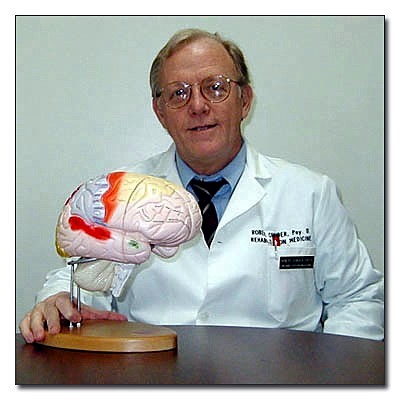 Presented by:
Presented by:
Robert L. Conder, Psy.D., ABPP
Clinical, Rehabilitation, & Sports Neuropsychology
Carolina Neuropsychological Service
Neuropsychologist, Duke Raleigh Hospital
Sports Neuropsychology is an emerging subspecialty, especially given the widespread concern over the effects of concussions at all levels of athletic performance. Yearly, an estimated 38 million children and adolescents participate in organized sports, and it is estimated that 1.6-3.8 million youth concussions are sustained yearly. While based in the fundamentals of Neuropsychology, a Sports Neuropsychology framework requires modification in both assessment and treatment methodologies. This presentation will review the neuroscience, assessment, prevention and management of sports concussions. A repeatable, focused and sensitive assessment model for sports concussion will be delineated. Emphasis will be given to pediatric and adolescent return-to-play and return-to-classroom issues. Predictors of prolonged recovery will be explicated, as will treatment interventions which can speed up or maximize the recovery process. The topic of Chronic Traumatic Encephalopathy will be addressed. A model school-based Concussion Education, Prevention and Management Program will be presented. The implications of Youth Sport Safety Legislation, such as has been introduced in at least 38 states, will be addressed. Finally, suggestions for professional education and training in the field of Sports Neuropsychology will be offered.
After the webinar, participants will be able to:
- define a sports concussion, and identify similarities and differences from a traumatic brain injury;
- describe management techniques to reduce psychological and academic morbidity post-concussion, including parent, teacher and school consultation;
- prepare brief and focused assessment batteries and describe how these differ from a traditional neuropsychological or psychoeducational assessment battery;
- explain model guidelines for reduction of sports concussions; and be introduced to educational/advocacy guidelines for parents, players, coaches and schools.
Target Audience: Primarily neuropsychologists who wish to expand their practice to work with athletic populations of any age.
Instructional Level: Introductory
NAN members login and non-members create an account to:
